Understanding Medication-Assisted Treatment (MAT)
Medication-Assisted Treatment (MAT) is a holistic, evidence-based approach for treating opioid use disorder (OUD). Recognized as the gold standard of care, MAT combines three FDA-approved medications—methadone, buprenorphine, and naltrexone—with counseling and behavioral therapies, addressing both the physical and psychological aspects of addiction. This synthesis offers a comprehensive pathway to recovery, making MAT a crucial tool in the fight against opioid addiction.
What is Medication-Assisted Treatment (MAT) for Opioid Addiction?
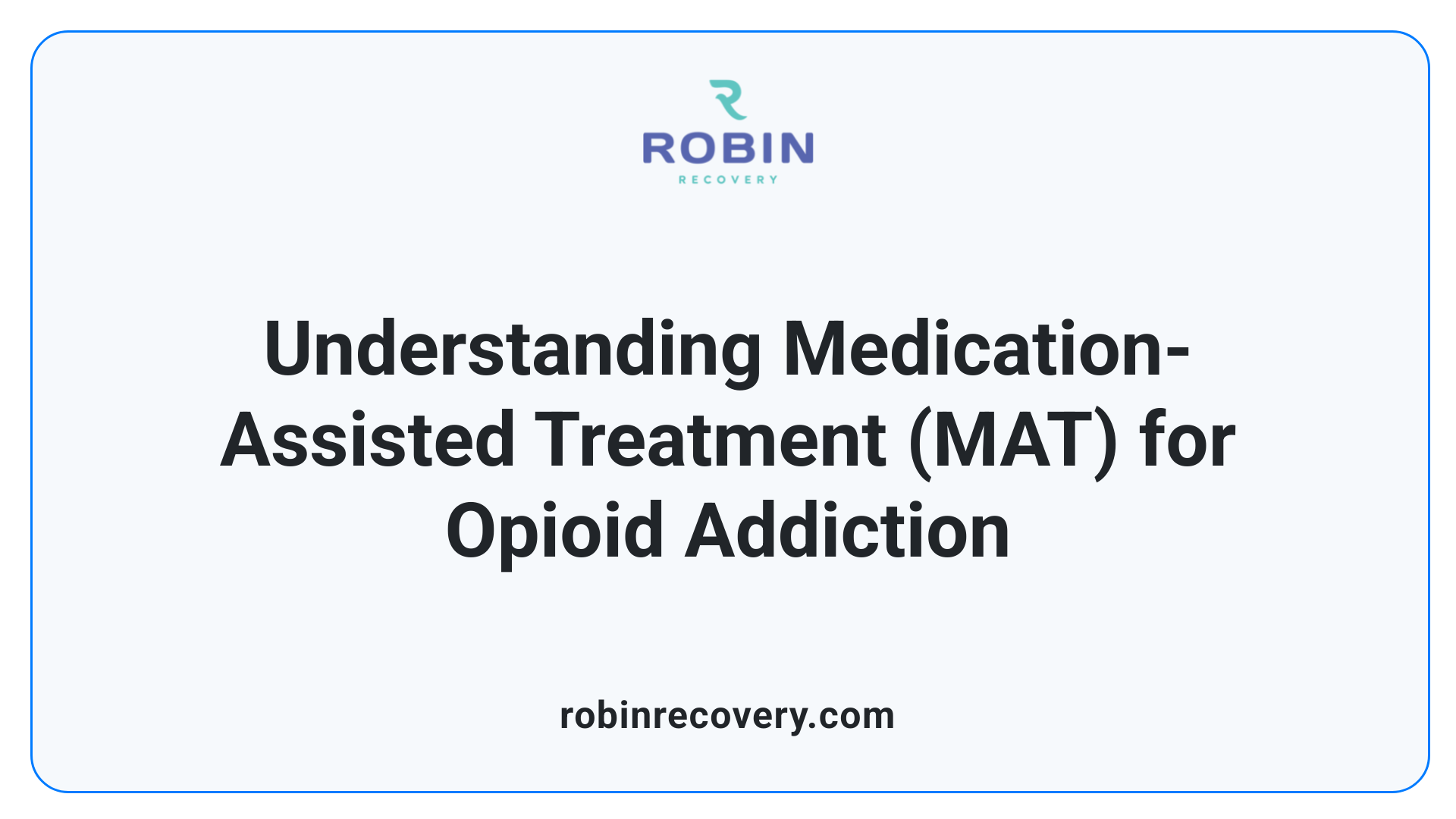
What is Medication-Assisted Treatment (MAT) for opioid addiction?
Medication-Assisted Treatment (MAT) is an evidence-based strategy for addressing Opioid Use Disorder (OUD). This holistic approach integrates counseling and behavioral therapies with the use of FDA-approved medications. The main medications utilized in MAT are methadone, buprenorphine, and naltrexone.
These treatments are not merely substitutes for opioids. Instead, they aim to bring balance to brain chemistry, reduce cravings, and alleviate the withdrawal symptoms associated with opioid addiction. Notably, methadone and buprenorphine help prevent discomfort from withdrawal, while naltrexone blocks opioid effects entirely, reducing the desire to misuse.
Why is MAT access important in justice settings?
Access to MAT is crucial, particularly within justice settings such as prisons and jails. Individuals incarcerated for substance use disorders are at a significantly heightened risk of overdose upon release, largely due to altered tolerance levels. The Americans with Disabilities Act underscores this need by mandating that incarcerated individuals receive appropriate treatment before re-entering society.
Enhancing access to MAT in these settings not only supports recovery but also reduces the potential for criminal activity and improves overall public health. This comprehensive treatment approach not only focuses on the individual but also addresses broader societal challenges.
The Benefits of Medication-Assisted Treatment (MAT)
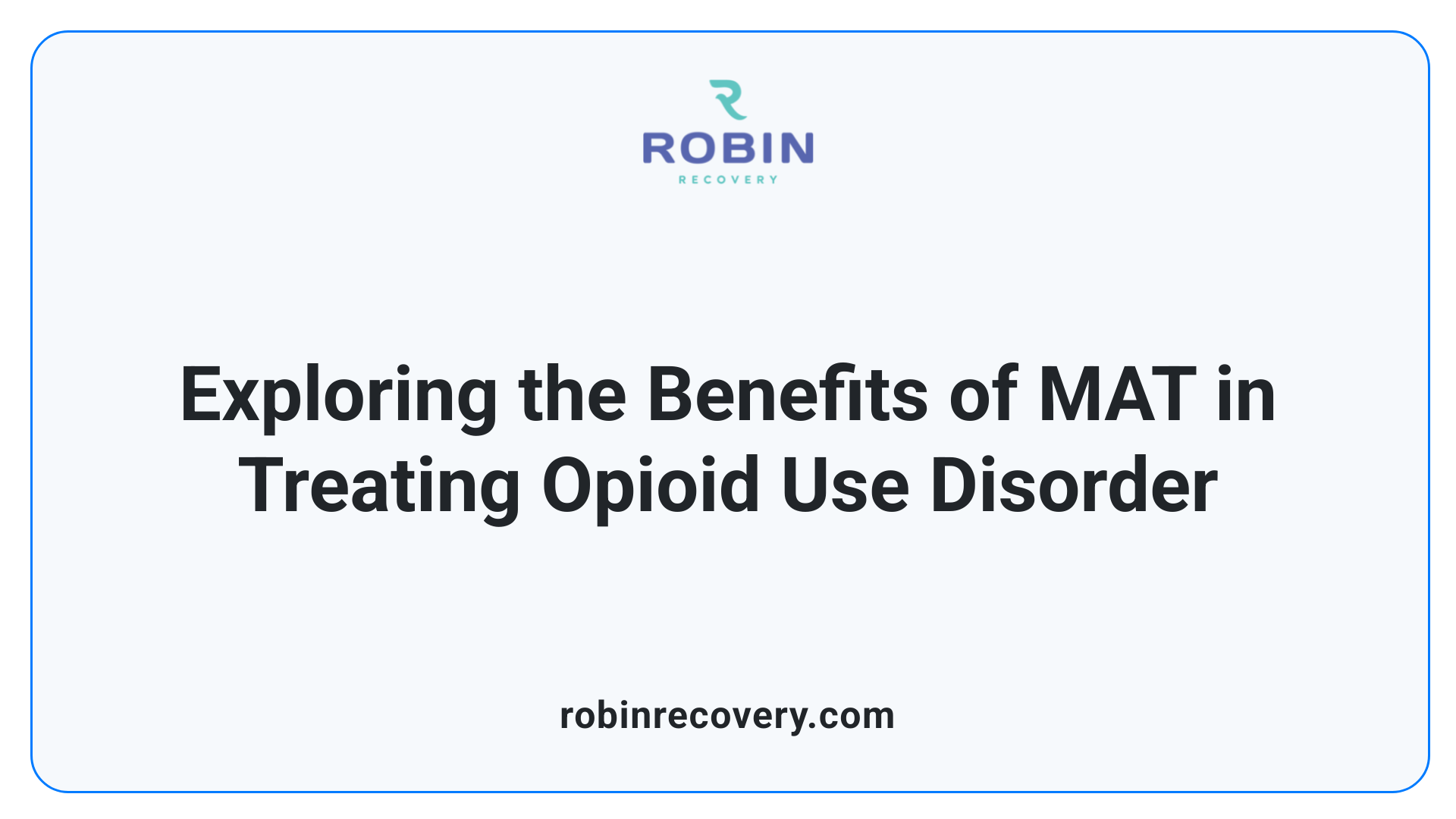
What are the benefits of Medication-Assisted Treatment (MAT)?
Medication-Assisted Treatment (MAT) offers a wide array of advantages for individuals grappling with opioid use disorders (OUD). With an emphasis on both physical and psychological recovery, MAT directly contributes to reducing opioid-related overdose deaths, which is a significant public health concern.
Here are some key benefits of MAT:
- Decreased Overdose Deaths: MAT has been shown to significantly reduce the risk of fatal overdoses by stabilizing brain chemistry and managing cravings.
- Reduced Illicit Opioid Use: Patients on MAT often experience a decline in illicit opioid consumption, leading to safer community environments.
- Enhanced Social Functioning: Individuals often see improvements in their social interactions, employment capabilities, and overall quality of life.
- Support for Pregnant Women: MAT has been linked to better birth outcomes for pregnant or breastfeeding women dealing with addiction.
- Lowering Disease Transmission: By reducing risky behavior, MAT contributes to decreased rates of infectious diseases such as HIV and Hepatitis C.
Social and Economic Benefits
Beyond personal health advantages, MAT brings significant social and economic benefits to communities. By lowering the incidence of opioid misuse, communities can anticipate reduced healthcare costs associated with emergency care and hospitalization. Furthermore, MAT helps mitigate expenditures tied to the criminal justice system, as it curbs criminal activity associated with substance use disorders.
In summary, Medication-Assisted Treatment not only aids individual recovery but also fosters social stability and economic savings, ultimately benefiting society at large.
Effectiveness of Medications in Treating Opioid Use Disorder
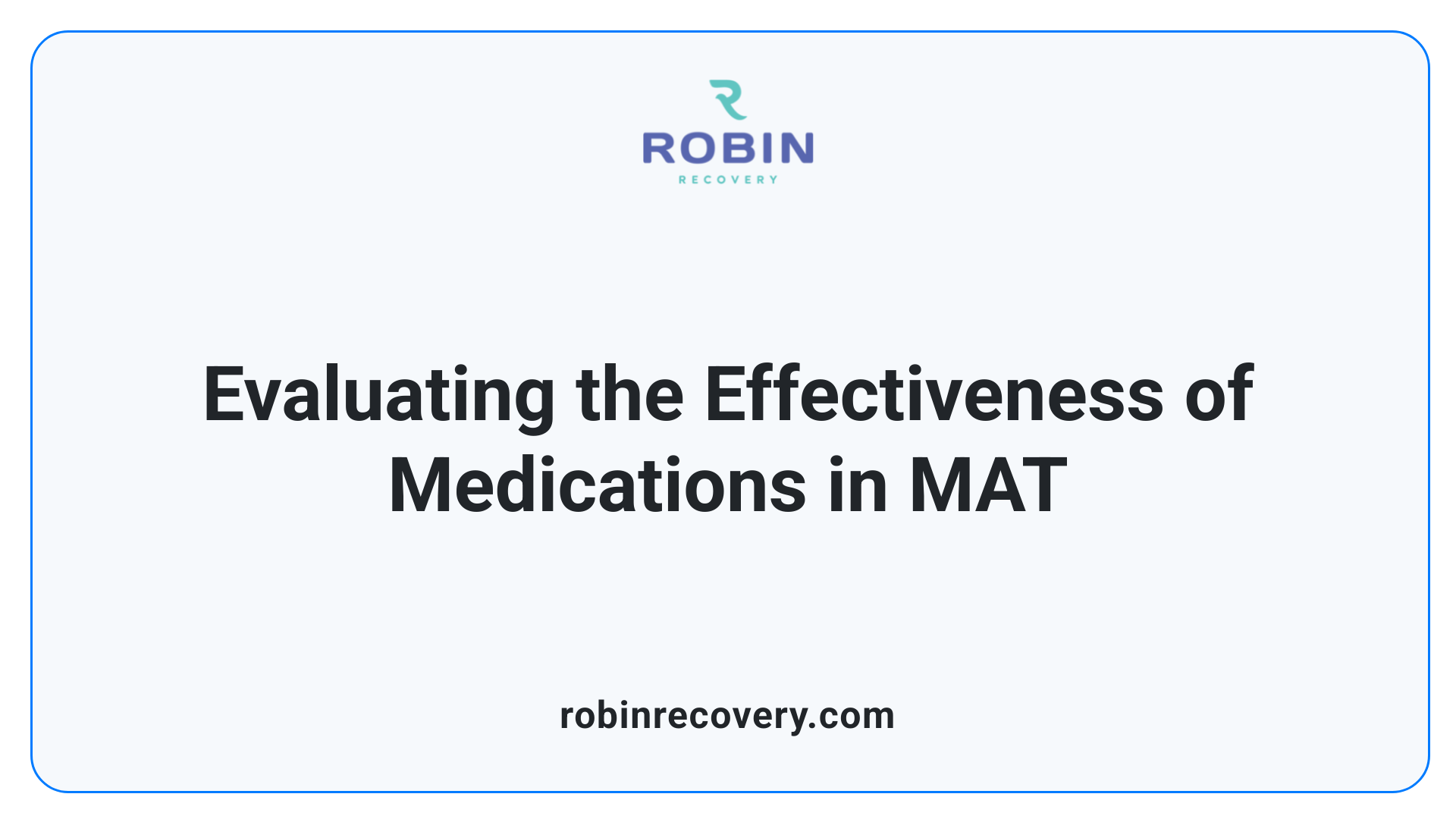
How effective are medications in treating opioid use disorder?
Medications play a crucial role in addressing opioid use disorder (OUD), demonstrating significant efficacy in curbing opioid misuse and alleviating symptoms. The three primary medications employed in Medication-Assisted Treatment (MAT)—methadone, buprenorphine, and naltrexone—each have distinct benefits:
Methadone: With a long-standing history of use since the 1960s, methadone is effective in managing cravings and withdrawal symptoms. Studies indicate that it leads to approximately 33% fewer opioid-positive drug tests and enhances treatment retention, allowing patients to engage more fully in their recovery journeys.
Buprenorphine: Particularly effective at higher dosages, buprenorphine is associated with lower relapse rates. It has a treatment failure rate of about 25% compared to placebo, marking a significant advantage for individuals undergoing treatment.
Naltrexone: This opioid antagonist also features an extended-release formulation, which has improved the effectiveness of treatment significantly. It has been reported to dramatically increase opioid abstinence rates, offering a robust option for long-term recovery.
Despite their remarkable success rates, MAT medications are still underutilized across the United States, emphasizing an urgent need for increased accessibility and systemic improvement in treatment practices.
Statistical insights on treatment outcomes
The implementation of MAT greatly influences both individual lives and public health. Research supports that:
| Medication | Effectiveness | Key Outcome |
|---|---|---|
| Methadone | Reduces opioid-positive tests by 33% | Enhances treatment retention and recovery engagement. |
| Buprenorphine | Treatment failure rate of 25% vs. placebo | Lower relapse rates; effective for managing cravings. |
| Naltrexone | Increases abstinence via extended-release | Robust option for long-term recovery without cravings. |
This table illustrates the comparative effectiveness of each medication and the significant impact they have on retention rates and abstinence. As the opioid crisis continues, focusing on these effective treatments could improve recovery rates and reduce the public health burden associated with opioid dependency.
Overcoming Barriers to Accessing MAT
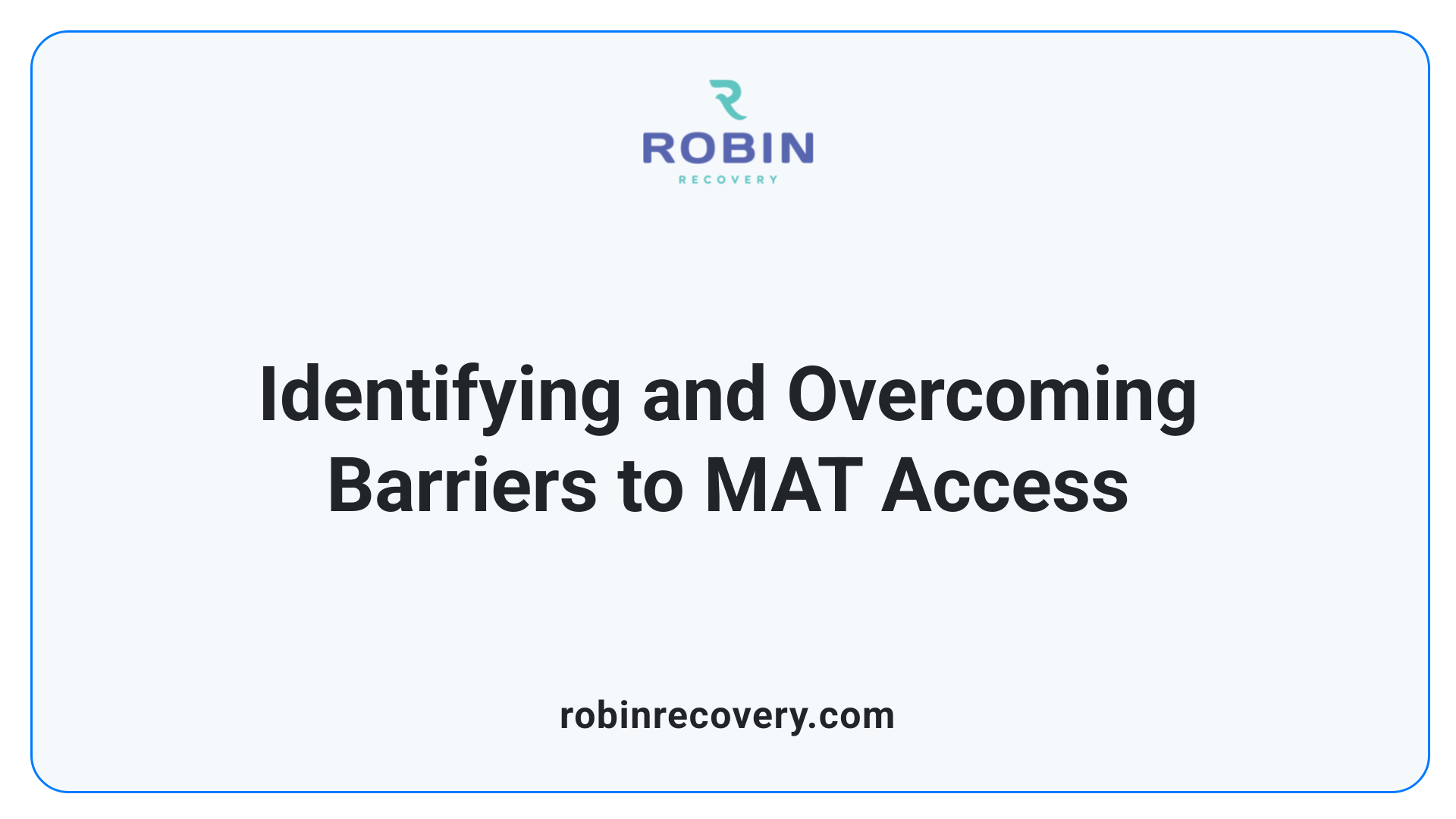
Underutilization of MAT
Despite the proven efficacy of Medication-Assisted Treatment (MAT) for opioid use disorder (OUD), it remains underutilized, with only about 11% of patients accessing FDA-approved medications. This alarming statistic illustrates a significant gap in treatment availability, calling for urgent systemic improvements to increase access.
Barriers in Rural Areas
Rural communities face distinct challenges in accessing MAT. Many residents experience a shortage of trained providers, which can impede timely treatment. Additionally, transportation difficulties exacerbate this issue, making it hard for individuals to reach healthcare facilities. To bridge this gap, targeted solutions addressing these unique barriers are essential.
Stigma and Accessibility Issues
Stigma surrounding addiction treatment remains a substantial hurdle. Many individuals hesitate to seek help due to fears of judgment or discrimination. Educating communities about MAT's benefits and normalizing the conversation around addiction can foster a more supportive environment.
Tackling these barriers involves collaboration between healthcare providers, community organizations, and policymakers to increase the reach and effectiveness of MAT.
Future Directions and Initiatives to Enhance MAT Usage
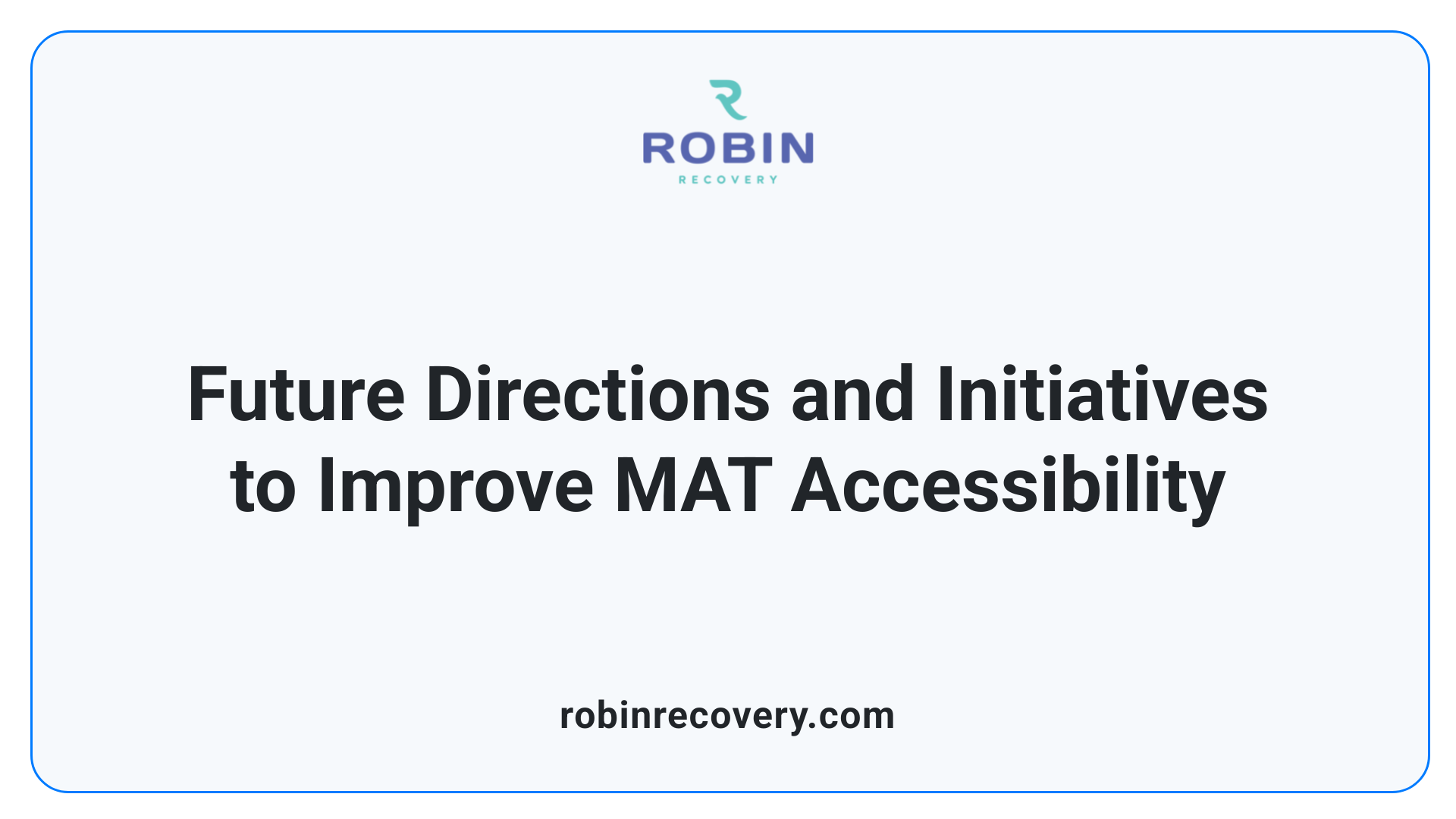
What FDA initiatives are being implemented?
The FDA is actively working to widen the accessibility of Medication-Assisted Treatment (MAT) for opioid use disorder (OUD). Their initiative, titled 'Prescribe with Confidence', encourages healthcare providers to engage in collaborative treatment approaches with patients, similar to the management of other chronic conditions. This campaign aims to demystify the prescribing process and empower clinicians to effectively support those battling opioid addiction.
How are education and awareness campaigns shaping MAT?
Education plays a pivotal role in increasing MAT adoption. Awareness campaigns are being launched to reduce the stigma associated with addiction treatment, informing both the public and healthcare professionals about the benefits of MAT. By addressing misconceptions and emphasizing its effectiveness, these initiatives aim to enhance recognition and utilization of FDA-approved medications like buprenorphine, methadone, and naltrexone. Enhanced education directs focus to MAT's holistic treatment approach, fostering a community environment conducive to recovery and support.
| Initiative | Focus Area | Expected Outcome |
|---|---|---|
| FDA 'Prescribe with Confidence' | Collaborative care for OUD | Increased clinician engagement |
| Awareness campaigns | Public and professional education | Reduced stigma around addiction treatment |
| Educational resources for clinicians | Understanding MAT medications | Improved prescribing practices |
MAT: Revolutionizing Opioid Addiction Recovery
Medication-Assisted Treatment (MAT) stands as a transformative approach in addressing opioid addiction, with its holistic integration of medications and therapy proving critical in improving patient outcomes and reducing public health risks. Despite its proven effectiveness, stigma and accessibility challenges hinder widespread application. Addressing these barriers through policy changes and educational initiatives will be essential to unlocking the full potential of MAT, offering hope and healing to countless individuals battling opioid addiction.
References
- Medication-Assisted Treatment FAQ
- Medications for Substance Use Disorders - SAMHSA
- Benefits of Medication-Assisted Treatment - BAART Programs
- National Helpline for Mental Health, Drug, Alcohol Issues - SAMHSA
- Medication-Assisted Treatment for Opioid Use Disorder in a Rural ...
- Information about Medications for Opioid Use Disorder (MOUD) - FDA
- Medication Assisted Treatment (MAT) - American Addiction Centers
- The Advantages and Disadvantages of Medication-Assisted ...
- Medication-Assisted Treatment FAQ
- How Medication Assisted Treatment Works To Combat Addiction
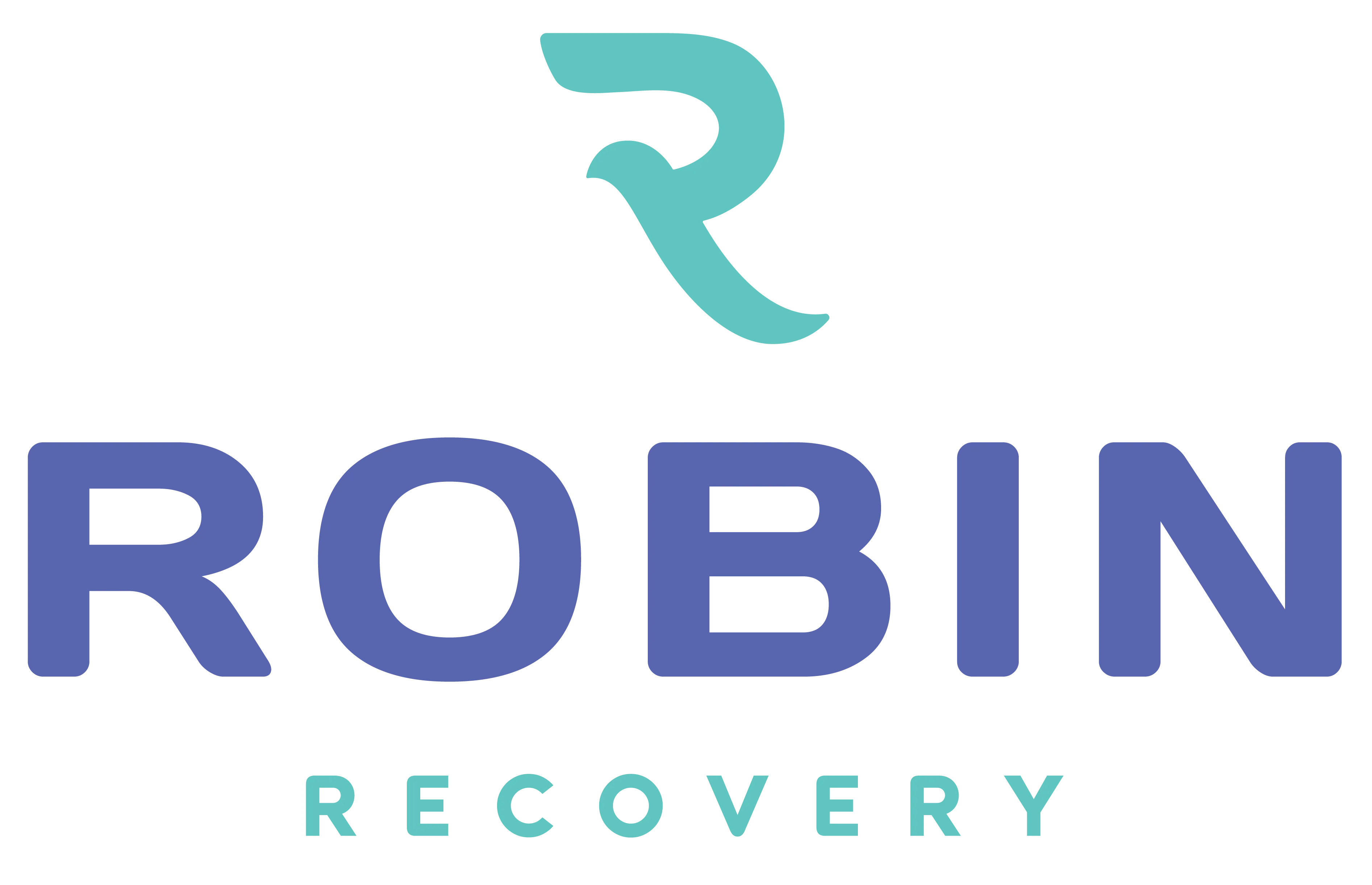
.svg)

.svg)

.svg)
.svg)






































































































